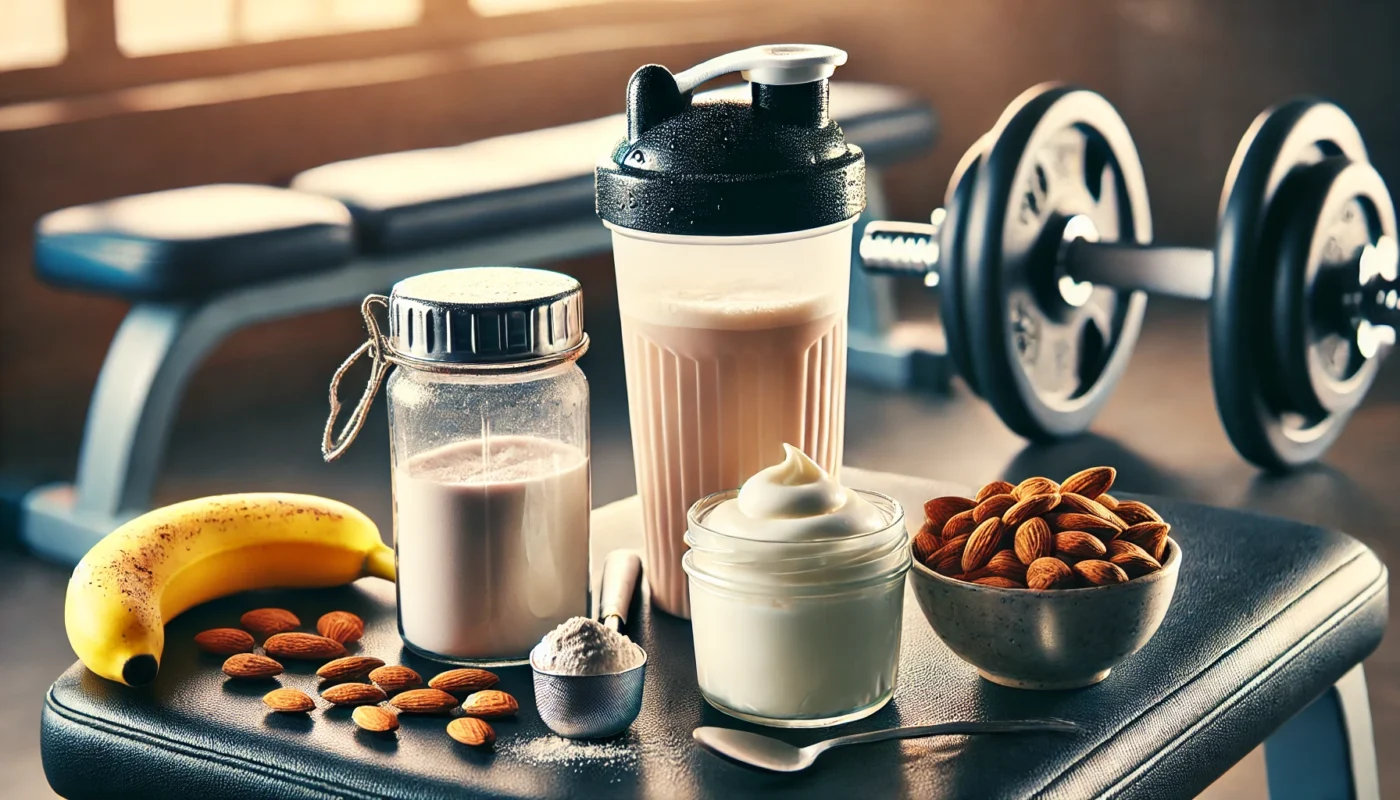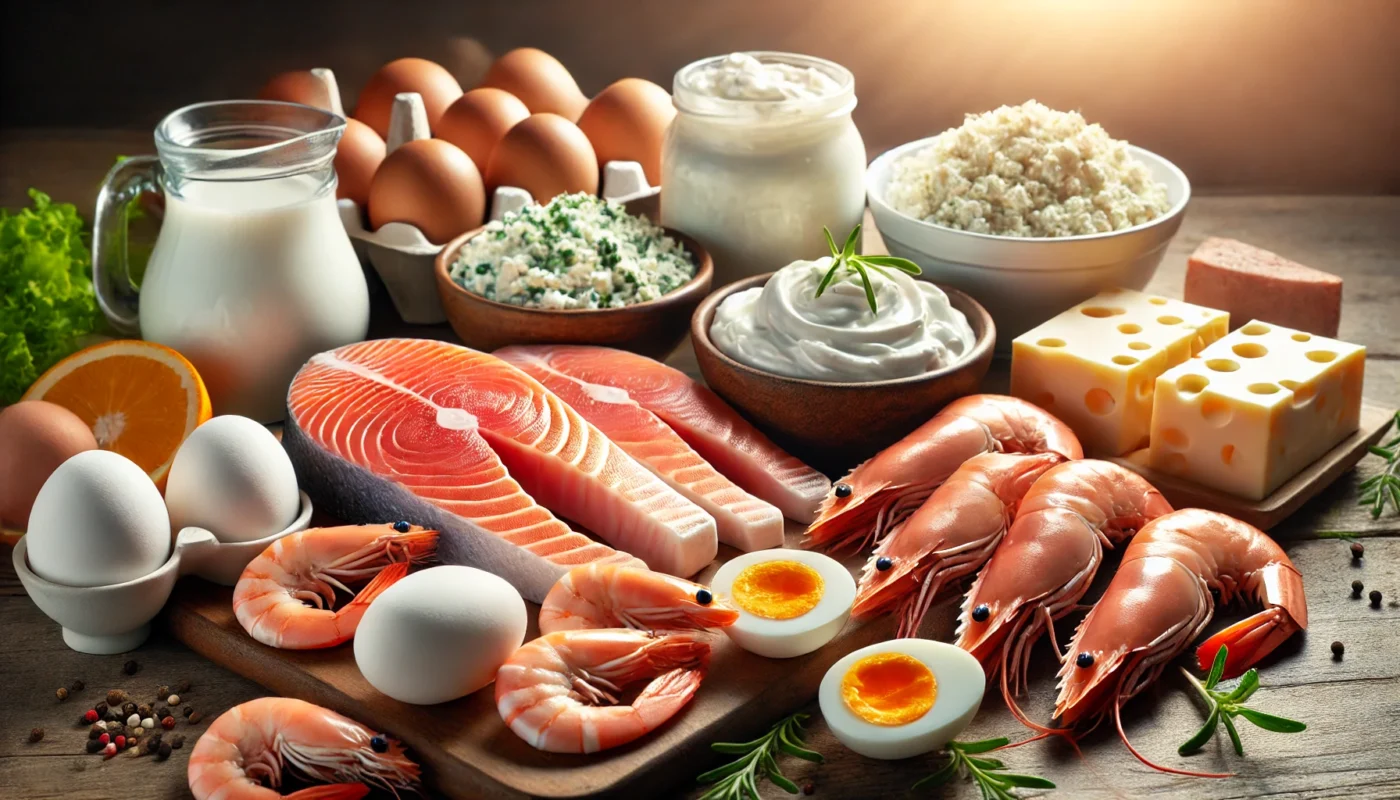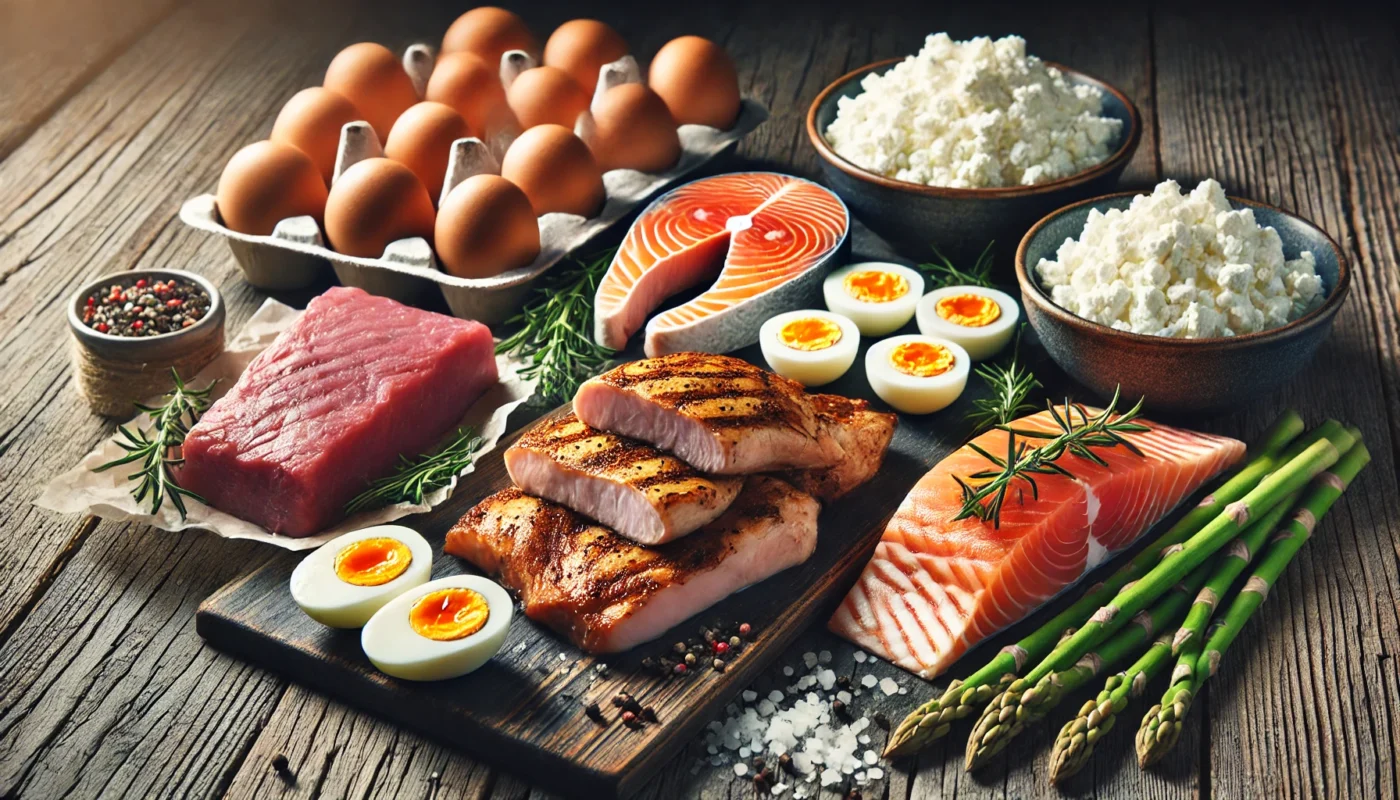Before exploring the best protein sources, it’s crucial to understand how protein aids in muscle growth. Proteins are made up of amino acids, which are the building blocks of muscle tissue. During exercise, particularly resistance training, muscle fibers endure microscopic tears. Protein helps repair these tears, allowing muscles to grow larger and stronger.
You may also like: High Protein Foods to Fuel Workouts

The Role of Protein in Muscle Synthesis
Protein synthesis is the process through which cells build proteins. For muscle growth to occur, protein synthesis must exceed muscle protein breakdown. Consuming adequate protein ensures that your body has the necessary materials to support this process, making it a cornerstone of any muscle-building regimen.
Balancing Protein Synthesis and Breakdown
To foster muscle growth, the balance between protein synthesis and breakdown must be tipped in favor of synthesis. This is achieved by consuming a diet rich in high-quality protein and timing intake strategically around workouts.
Importance of Amino Acids
Amino acids, particularly essential amino acids like leucine, play a critical role in kickstarting the muscle protein synthesis process. Understanding the types of amino acids and their sources can help you optimize your diet for muscle growth.
Impact of Exercise on Protein Needs
Exercise, especially strength training, increases the demand for protein to support recovery and growth. Tailoring your protein intake to your activity level ensures that your muscles receive adequate nourishment to adapt and grow stronger.
Top Protein Sources for Muscle Growth
With a clear understanding of protein’s role, let’s explore some of the top protein sources that can enhance muscle growth.
1. Lean Meats
Lean meats, such as chicken, turkey, and lean cuts of beef, are excellent sources of high-quality protein. They provide all essential amino acids needed for muscle repair and growth. Additionally, they are rich in vitamins and minerals like iron and zinc, which support overall health and fitness.
Chicken Breast
Chicken breast is a staple in bodybuilding diets due to its high protein content and low fat. A 100-gram serving of chicken breast provides approximately 31 grams of protein, making it an efficient source for muscle gain without excessive calorie intake.
Turkey
Turkey offers a slightly different nutritional profile, providing both protein and essential nutrients like selenium, which is important for immune function. Its versatility in cooking makes it a convenient option for various meals.
Lean Beef
Lean beef is another superb option, offering not only protein but also creatine, which boosts strength and muscle mass. It also supplies essential nutrients such as vitamin B12 and iron, crucial for energy production and muscle recovery.
2. Fish and Seafood
Fish, particularly fatty fish like salmon and tuna, provides protein and omega-3 fatty acids, which reduce muscle inflammation and promote recovery.
Salmon
Salmon is a powerhouse of nutrition, offering around 25 grams of protein per 100 grams, along with a healthy dose of omega-3s. These fatty acids have been shown to enhance muscle protein synthesis and reduce the breakdown of muscle proteins.
Tuna
Tuna is another excellent source, with approximately 30 grams of protein per 100 grams. It’s low in fat and calories, making it ideal for those aiming for lean muscle gain. Including a variety of fish in your diet can provide both protein and heart health benefits.
Shellfish
Shellfish like shrimp and scallops are also protein-rich options, offering lower calorie alternatives for those managing their intake. They provide additional nutrients like iodine and selenium, supporting thyroid function and antioxidant defense.
3. Plant-Based Proteins
For those following a vegetarian or vegan diet, plant-based proteins can also support muscle growth. Options such as lentils, chickpeas, and quinoa are valuable additions to a muscle-building diet.
Lentils
Lentils offer a substantial amount of protein, with about 9 grams per half-cup cooked serving. They are also rich in fiber and essential nutrients like iron and folate, which support overall health.
Chickpeas
Chickpeas, or garbanzo beans, are another excellent plant-based protein, providing about 7 grams of protein per half-cup. They are versatile and can be incorporated into a variety of dishes, from salads to stews.
Quinoa
Quinoa is a complete protein, meaning it contains all nine essential amino acids. It provides around 8 grams of protein per cup cooked, making it an excellent grain alternative for muscle growth.
4. Dairy and Eggs
Dairy products and eggs are versatile protein sources that can easily be incorporated into meals and snacks.
Greek Yogurt
Greek yogurt is a fantastic option, offering double the protein of regular yogurt, with around 10 grams per 100 grams. It’s also a great source of probiotics, which support gut health.
Cottage Cheese
Cottage cheese is another high-protein dairy option, containing casein, a slow-digesting protein that can help sustain amino acid levels overnight, supporting muscle repair and growth during sleep.
Eggs
Eggs are one of the most complete sources of protein available, with each egg providing about 6 grams of high-quality protein. They are also packed with essential nutrients like vitamin D and B vitamins, which play a role in energy metabolism.
5. Protein Supplements
While whole foods should form the basis of your protein intake, supplements can be a convenient way to meet daily protein needs, especially post-workout.
Whey Protein
Whey protein is a fast-digesting protein source, making it ideal for post-exercise recovery. It contains all essential amino acids and has been shown to effectively enhance muscle protein synthesis.
Casein Protein
Casein protein is another supplement option, offering a slow-release form of protein that can be beneficial for nighttime use. This helps maintain a steady supply of amino acids to muscles during rest periods.
Plant-Based Protein Powders
For those avoiding dairy, plant-based protein powders made from peas, brown rice, or hemp provide a suitable alternative. These powders can also offer a complete amino acid profile, supporting muscle growth.

Best Practices for Protein Consumption
To optimize muscle growth, it’s essential to not only focus on the amount of protein but also the timing and distribution of protein intake throughout the day.
Timing and Distribution
Consuming protein evenly across meals can maximize muscle protein synthesis. Aim to include a source of protein in every meal and snack to provide a steady supply of amino acids to your muscles.
Importance of Regular Intake
Regular protein intake throughout the day helps maintain muscle protein synthesis and prevents muscle breakdown. This approach supports continuous muscle repair and growth.
Protein Timing Around Workouts
Strategically timing protein intake before and after workouts can enhance muscle recovery and growth. Consuming protein within a window of about 30 minutes post-exercise is particularly beneficial.
Post-Workout Nutrition
After exercise, your muscles are primed to absorb nutrients, making this an ideal time to consume protein. A post-workout meal or shake with a combination of protein and carbohydrates can enhance recovery and muscle growth.
Ideal Post-Workout Protein Sources
Options like whey protein shakes or a meal combining lean protein and complex carbohydrates can replenish energy stores and support muscle repair.
Role of Carbohydrates with Protein
Including carbohydrates with post-workout protein helps replenish glycogen stores and facilitates the efficient transport of amino acids to muscles, optimizing recovery.
Balancing with Other Nutrients
While protein is crucial, it’s important to maintain a balanced diet rich in carbohydrates and healthy fats, which also play significant roles in energy production and recovery.
Carbohydrates and Energy
Carbohydrates provide the primary energy source for high-intensity workouts, supporting performance and recovery. Choosing complex carbohydrates ensures sustained energy release.
Healthy Fats and Hormone Production
Healthy fats are essential for hormone production, including testosterone, which plays a role in muscle growth. Sources like avocados, nuts, and olive oil are beneficial additions to a balanced diet.

Conclusion
Selecting the right protein sources is essential for achieving optimal muscle growth. By incorporating a variety of high-quality protein foods into your diet, you can ensure that your muscles receive the necessary nutrients for repair and growth. Whether you prefer animal or plant-based proteins, there are numerous options to suit your dietary preferences. Remember to balance your protein intake with other macronutrients and to consume protein consistently throughout the day for the best results. Embrace these strategies, and you’ll be well on your way to achieving your muscle-building goals.
muscle growth, protein sources, amino acids, lean meats, fish, plant-based proteins, dairy, protein supplements, workout nutrition, protein timing, muscle synthesis, healthy fats, carbohydrates, fitness, bodybuilding, nutrition
Further Reading:
How to Choose the Best Protein Powder for You
Here’s Exactly How Much Protein You Need
Which Protein Is Best for Beginners?
Important Note: The information contained in this article is for general informational purposes only, and should not be construed as health or medical advice, nor is it intended to diagnose, prevent, treat, or cure any disease or health condition. Before embarking on any diet, fitness regimen, or program of nutritional supplementation, it is advisable to consult your healthcare professional in order to determine its safety and probable efficacy in terms of your individual state of health.
Regarding Nutritional Supplements Or Other Non-Prescription Health Products: If any nutritional supplements or other non-prescription health products are mentioned in the foregoing article, any claims or statements made about them have not been evaluated by the U.S. Food and Drug Administration, and such nutritional supplements or other health products are not intended to diagnose, treat, cure, or prevent any disease.

